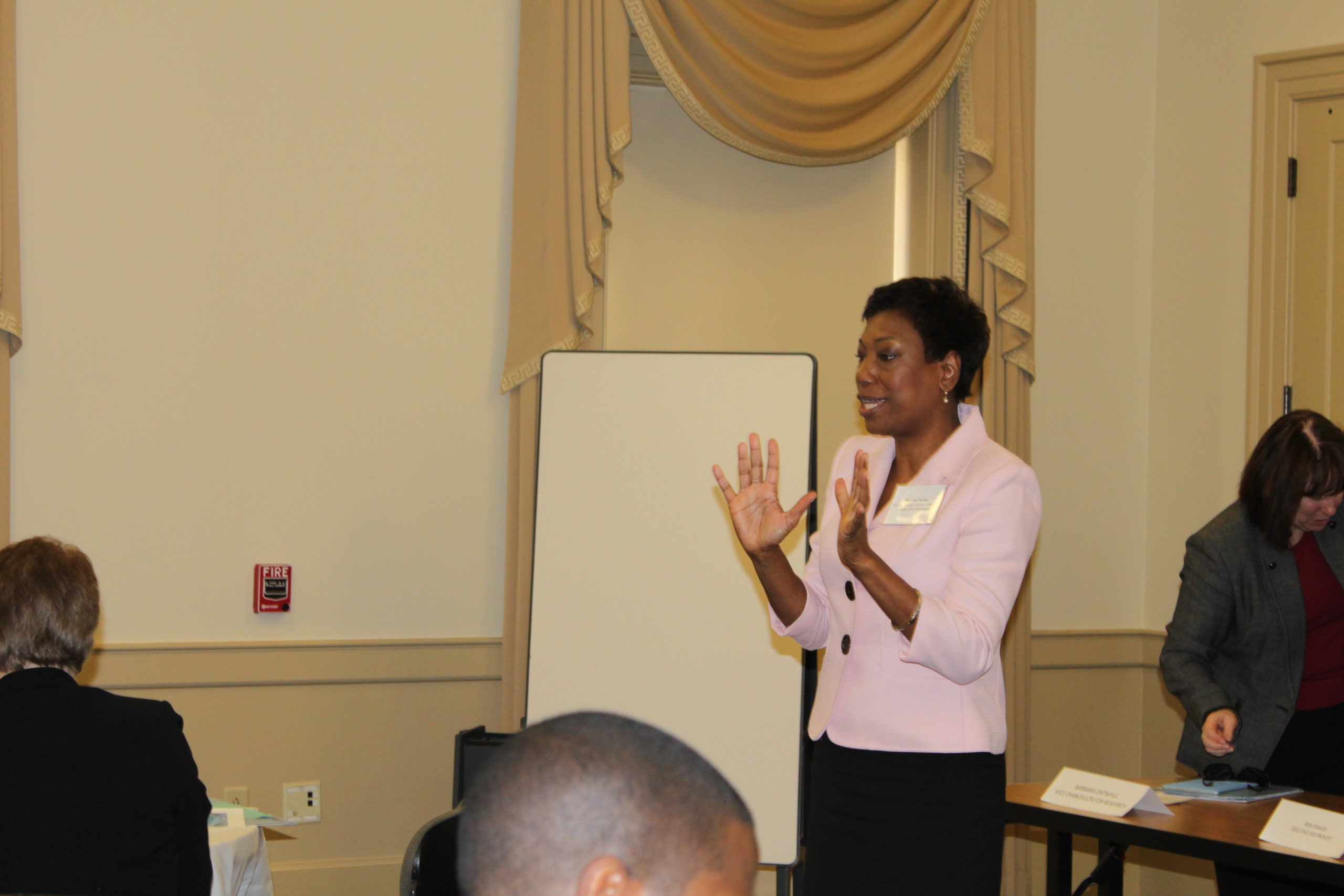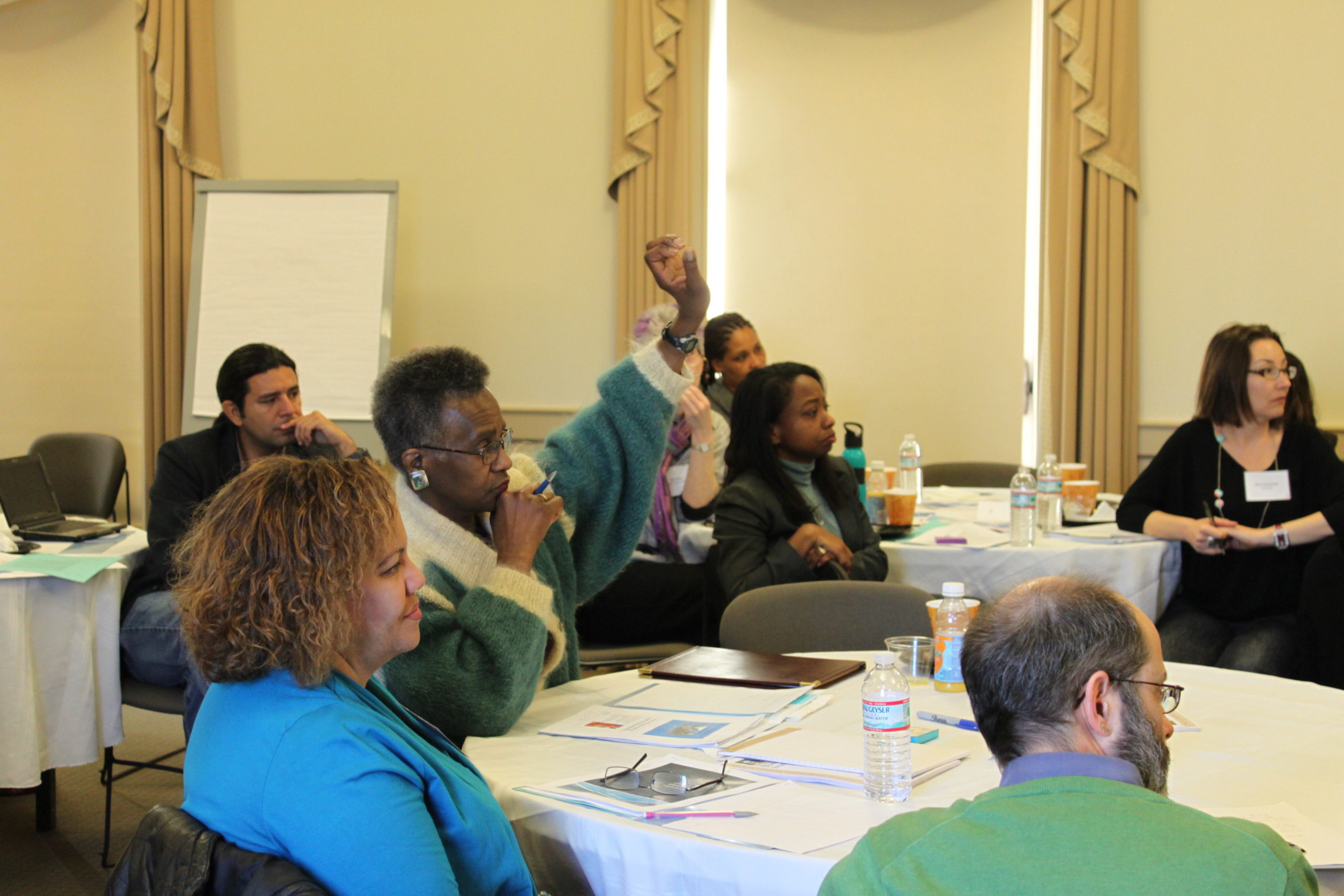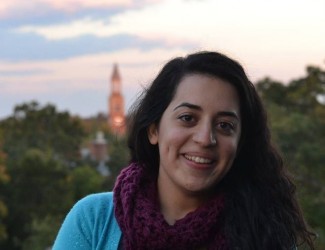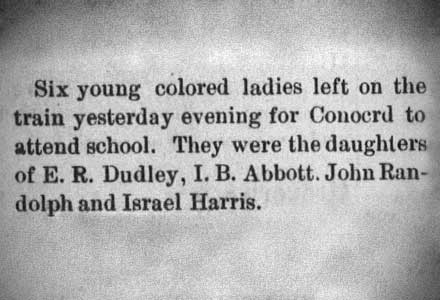
Faculty Diversity Liaisons from departments across the College of Arts and Sciences gathered this spring to exchange information and ideas about how to enhance the diversity of the faculty.
Patricia Parker, Director of Faculty Diversity Initiatives in the College, told the group she convened to “network and learn from each other so that you have ideas to take back to your unit, and to set some goals that reflect a collective vision for diversity in the College.”
“I am excited about the work we will do together,” Parker said.
Senior Associate Dean Terry Rhodes told the group that advancing faculty diversity is a top priority for the College. That is why Dean Karen Gil appointed a Faculty Diversity Task Force, she said, and fulfilled task force recommendations to appoint a Director of Faculty Diversity Initiatives in the College and Diversity Liaisons in every department.
The dean’s office has encouraged all academic departments in the College to be proactive in the recruitment and retention of faculty from diverse backgrounds, through regular faculty searches as well as the Office of the Provost’s Targeted Hiring Program and the Carolina Postdoctoral Program for Faculty Diversity.
The results have been encouraging, said Rhodes. During the past year alone, one-third of new tenured and tenure-track faculty joining the College are from under-represented populations. Nearly one-third of them are women. Over the past three years, nearly two-thirds of the departments hiring in the College participated in the Targeted Hiring Program, successfully hiring 15 new faculty members from under-represented populations through that program alone. One-third of the College’s academic programs also hired fellows from the Carolina Postdoctoral Program for Faculty Diversity.
“We realize we still have a lot more to do,” said Rhodes. “By working together strategically in your units and across the College, we will continue making progress.”

Barbara Entwisle, Vice Chancellor for Research, summarized the role of the Carolina Postdoctoral Program for Faculty Diversity. The program was started in 1983 and was one of the first in the nation to support and advance postdoctoral scholars from under-represented racial and ethnic populations. Since then, it has supported 147 scholars. Of those, 131 (89 percent) went on to teach or work in higher education. From 2006 through 2011, the program had 30 postdoctoral fellows, and 15 of them were hired into permanent positions at UNC. All are still here, Entwisle said.
Executive Vice Provost Ron Strauss reported on the progress made by the Office of the Provost’s Targeted Hiring Program. The program was begun in 2000 to enhance faculty diversity. Since its inception, the program has supported the hiring of 16 faculty members, including 86 who are still at Carolina.
Taffye Benson Clayton, Vice Provost for Diversity and Multicultural Affairs, emphasized the importance of integrating diversity strategies at every step of the search process. She said her office has resources and can conduct workshops to help the departments enhance faculty diversity.
Ann Penn, Equal Opportunity/ADA Officer, summarized the EEOC/HR guidelines for faculty diversity and said she was available to help and answer questions.
The Diversity Liaisons broke into small groups to exchange information and ideas. They emphasized the importance of proactive, concerted efforts to advance faculty diversity. They said it was important to involve the Diversity Liaisons on search committees at all levels. They also said that mentoring and promoting faculty was important for retention. Several liaisons said that the postdoctoral and targeted hiring programs were helpful to their units. One liaison reported that the department decided to let postdoctoral fellows know they would be interviewed for a tenure-track faculty position before the end of their first year; that department made a successful offer to a postdoctoral fellow before that person went on the market.
The group agreed to keep exchanging information and to meet again in the fall.


